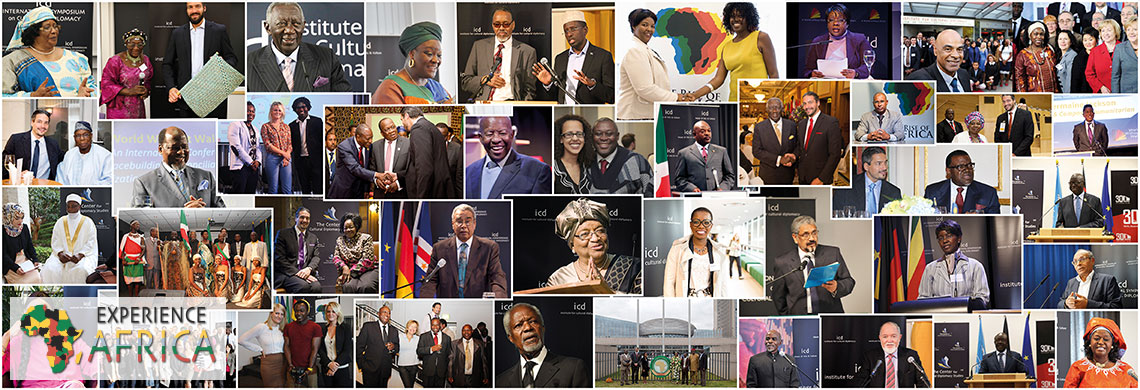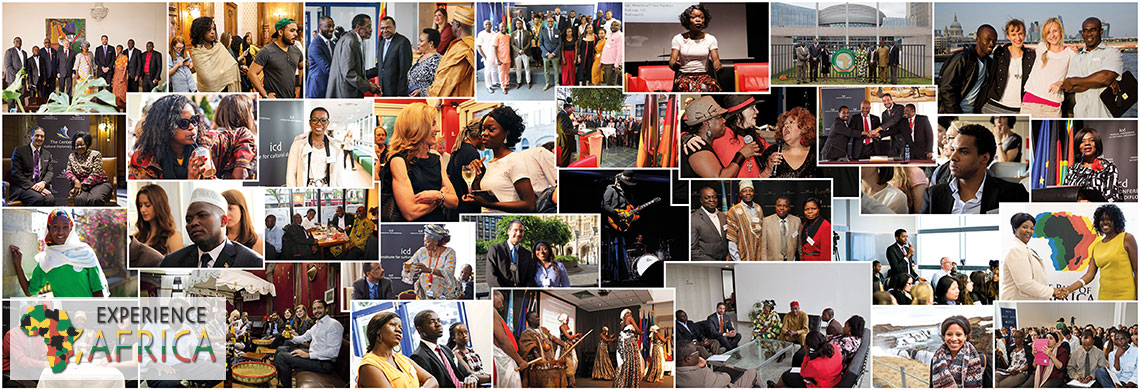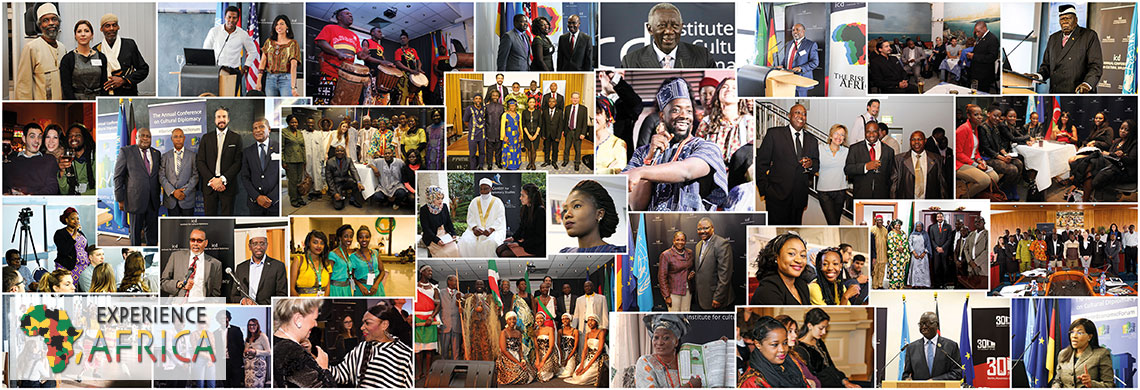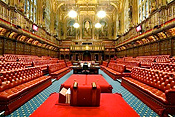The International Conference on the African Union & Cultural Diplomacy
"Cultural Diplomacy as a Vehicle of Global Governance: The Role of Cultural Diplomacy and Soft Power in the Future of the African Union"

Conference Agenda
In an increasingly interconnected and interdependent world, the most pressing challenges are ones that transcend national borders—climate change, nuclear proliferation, terrorism, and even national debt are thoroughly “global” problems that require collective solutions. As a result, states have established and are continuing to establish stronger partnerships, and international institutions like the AU have become more and more influential, even rivalling traditional state actors in efficacy.Despite this increased focus on global governance, however, the tool of cultural diplomacy has remained under the radar, and needs to be explored as an effective tool for strengthening multilateral relationships, within and outside the AU, and building new alliances to further “global causes” like development, human rights and good governance.
The following issues will be addressed:
The promotion of good governance and human rights through the AU charter
Good governance and human rights are arguably prerequisites for development and economic growth. Over the past decades the civil societies have stressed the importance for developing nations in Africa to improve these practices via institutional and constitutional changes, the emergence of functioning multi-party systems and democratic elections.Giving strong preponderance to individual human rights has also been an important area that civil societies have focused upon .While these are not changes that can be made overnight, several African states have made considerable progress in the move towards free and fair elections and the institutionalization of human rights.
- Institutional Challenges to Creating and Maintaining Multi-Party Environments
(Focus: Policies, elections, accountability, transparency and political participation) - The Role of Cultural Diplomacy in Building Confidence and Trust within the AU
(Focus: Inter-cultural dialogue, national and regional cultural understanding) - Institutionalization of Human Rights
(Focus: Individual versus the state, human rights conventions) - The Role of Government:Putting Words Into Action
(Focus: Policy implementation, constitutional change, referendums)
Challenges to Peace & Security in Africa
The importance of peace and security must be emphasized on three levels—internationally, regionally and domestically. The AU has designated peace and security as policy priorities. The conference will therefore examine its role in peacekeeping operations, humanitarian intervention and the facilitation of inter-cultural and international dialogue to address traditional and non-traditional security concerns.
- The AU and Intervention: Whose Responsibility to Protect?
(Focus: Genocide, conflict resolution, sovereignty, non-interference, collective action) - Fighting Terrorism: The AU’s Approach
(Focus: Collective security, , , national security, strategies, international collaboration) - Addressing Religious Discrimination: The Role of Cultural Diplomacy
(Focus: Extremism, cultural understanding, religion, interfaith dialogue, violence,) - Food Security and Environmental Challenges
(Focus: Agriculture, trade, land ownership, , aid, COP17)
Global Partnerships and Regional Cooperation
As global networks, regional blocs and strong corporations have become more and more prominent and influential; nation-states have become increasingly cognizant of their inability to address challenges that are global in nature. Forging strong ties with other nations and utilising collective approaches to what were once conceived as domestic problems have become a necessity.Although the AU has shown a great intention for regional integration, there is still considerable room for development in terms of speaking with one unified voice. The third day of the conference will explore the AU's position on four strategic issues—trade, energy, regional integration and migration.
- Transnationalism and Trade Regimes: Balancing Interests
(Focus: Trade policies, Bi-and-multi-lateralism, transnational corporation, WTO) - Negotiating a Sustainable Energy Policy: Challenges and Prospects
(Focus: Energy technology, renewable energy, capacity building, technological transfer) - Challenges of Regional Integration: Divergences and Common Goals
(Focus: Economic integration, stability, political will and capacity) - Cross-Continental Migration: Building Bridges or Building Walls
(Focus: Security, migration policies, human rights, citizenship, discrimination)
Stimulating Economic Growth in Africa within the Current Global Climate
Amidst the alluring potential of international trade, the recent global economic vulnerabilities have demonstrated the need for careful integration of African economies into the world market and the importance of strengthening local trade institutions. This part of the conference will thus focus on alternative modes of economic development in contrast to the traditional north-south relationships. The AU's role in stimulating growth will also be reviewed.- Industrialization: Maturing Primary Industries
(Focus: Technologz transfer, natural resources, infrastructure, capacity building) - Promoting South-South Trade
(Focus: NEPAD, WTO policies, trade liberalization, impact of recession, diversification) - China in Africa:Contributor or Competitor ?
(Focus: Employment,, infrastructure, cultural diplomacy, sustainability) - Tourism in Africa: What Next?
(Focus: Trade through cultural exchange, eco-tourism, nation-branding, infrastructural development, innovation, music and art industries)






















